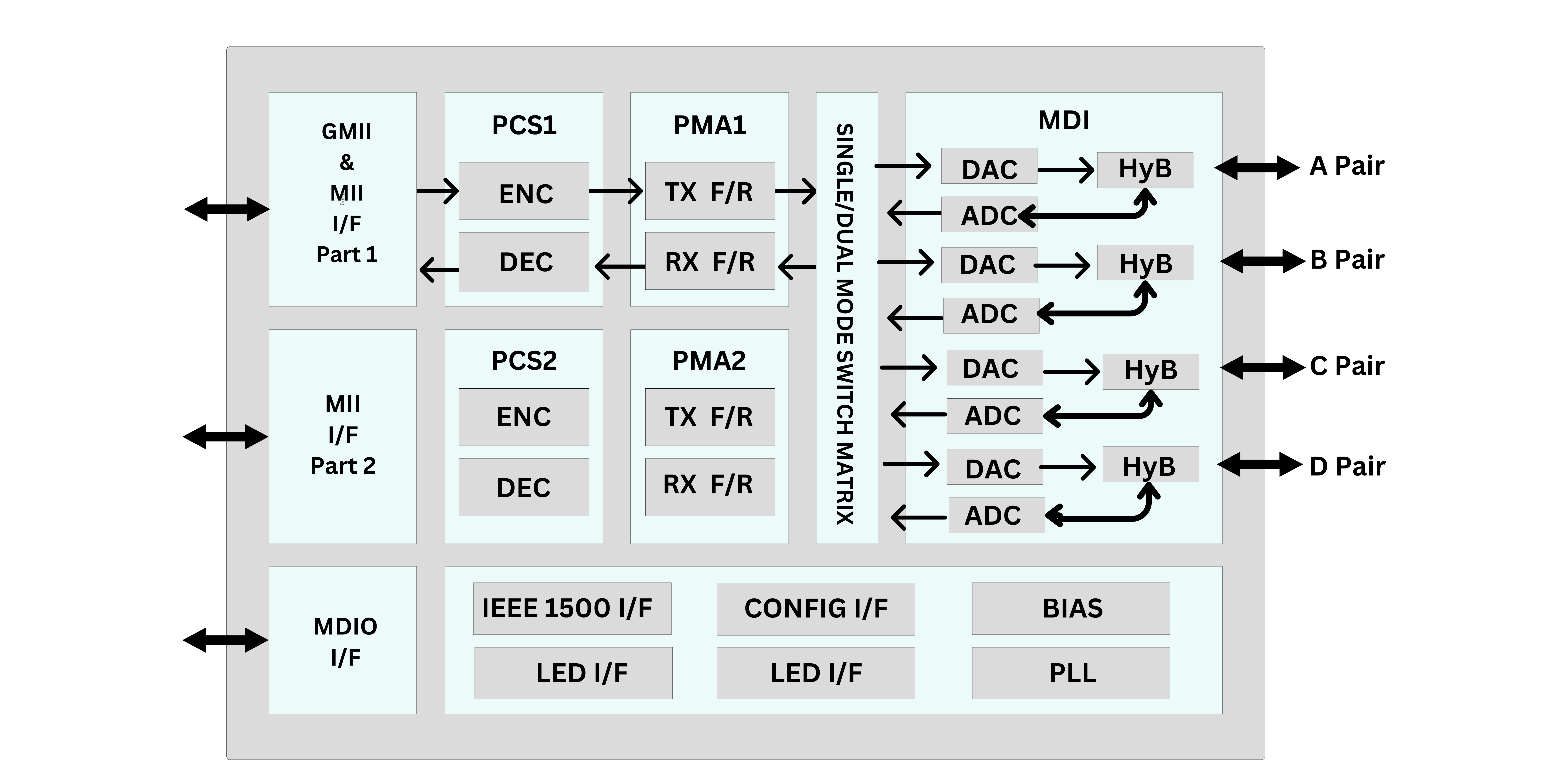1G Ethernet PHY IP Core is available for licensing as a Whitebox IP, with unlimited usage and full modification rights granted to the customer, ensuring a high level of flexibility with the deliverables.
The GbE PHY IP for Giga 10/100/1000 Ethernet applications is a highly integrated solution including the Twisted Pair Physical Medium Dependent Sub-layer (TP-PMD, 100BASE-TX only), Physical Coding Sub-layer (PCS), and Physical Medium Attachment Layer (PMA). It supports 10BASE-T, 100BASE-TX, and 1000BASE-T protocols with a very low power consumption and area. The Media Access Control Layer (MAC) is connected to this GPHY via GMII (Giga Media Independent Interface) or via RGMII. It supports Unshielded Twisted Pair Category 5 Cable (UTP5), or UTP5/UTP3 cable. The Gigabit physical layer function is defined by IEEE 802.3ab and IEEE 802.3u.

IEEE 802.3-2008, IEEE 802.3az fully standards compliant
IEEE 1588-2008 support
BroadR-Reach™ support
Dual port MAC interface:
GMII (10/100/1000BASE-T)
MII (10/100BASE-T)
Auto-negotiation support
Automatic detection and correction of pair swaps (Auto-MDIX), pair skew and pair polarity
6 different operating modes:
1000BASE-T Full Duplex and Half Duplex
100BASE-TX Full Duplex and Half Duplex
10BASE-T Full Duplex and Half Duplex
Management interface
Baseline wander compensation
On-chip transmit wave-shaping
On-chip hybrid circuit
10KB jumbo frames
Internal, external and remote loop back
Hardware configuration for default operation
Power down mode, interrupt support
IEEE 1500 support for SoC testing integration
LED indication: link mode, status, speed, activity and collision
Extracted from Production Chipset
Deliverables
Extensive Product Documentation
Verilog Model (A) for Simulation Purposes
Liberty Database (.db/.lib) for Synthesis, Timing Analysis, and Equivalence Verification
Design Verification with CTL/CTLDB Techniques
ATPG Utilizing SPF (STIL Procedure File)
Layout Exchange Format (LEF) for Automated Place and Route (APR)
Circuit Description Language (CDL) for Layout Versus Schematic (LVS) Alignment